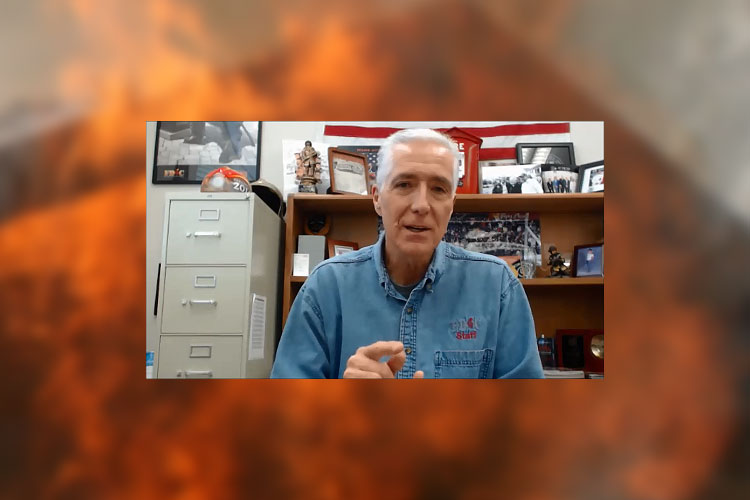

By Bobby Halton
In 1935, the Social Security Act established a system of old-age benefits for workers. The Social Security tax was put in place to provide a safety net for folks in retirement whose savings or “pensions” were inadequate.
Both income tax and SSI taxes are important issues for cops, firefighters, teachers, military and others with government pensions, because as public servants you are not treated fairly. The definition of fairness has been debated since time immemorial. Aristotle chimed in he said, “What is just is what is proportionate.”
So if we go with Aristotle, we should get back in some equally proportionate measure what we contribute, same as everyone else. The more our contributions to the overall effort, the more our compensation or gains should be. This seems fair for firefighters; it is quite the opposite: You are penalized for being a public servant and a hard worker. So here is an example.
READ MORE: Firefighters, Support H.R. 973/S. 1651 or H.R. 711 Now!
His name was Rick. In the late ’60s, he was drafted and sent to Vietnam. He served with distinction and returned home in one piece. He always wanted to be a firefighter, and his dream came true when he was hired by the fire department. Rick served again with distinction prior to his retirement in the late ’90s. He had earned his pension: 70 percent of his highest three years’ salary—a pension he had contributed approximately 16 percent of his gross earnings to as his contribution every payday. But, as a firefighter, Rick was exempt from paying Social Security taxes. So on retirement from the fire department, where no SSI taxes were deducted, he would not be eligible at age 62 to collect from Social Security—a fund he had not contributed to. Fair enough, no complaints.
But Rick had worked other jobs where he paid SSI before and during his firefighting career. Rick retired in good shape and soon landed a job with a major southwestern airline working the tarmac and baggage side of the operation. Rick would do another 20-plus years and then retire again. His pension, now 20 years old in salary terms, was very modest, and the government that guaranteed it had already changed the deal by taking away some of his cost-of-living adjustment; but, having paid Social Security now for 20-plus years, he would have that to help ease his financial issues in retirement. When Rick finally retired, he discovered that because of two federal programs—the Windfall Elimination Provision (WEP) and the Government Pension Offset (GPO)—his SSI benefits could be reduced by two-thirds of his pension, and his wife as a survivor (should he pass) would suffer the same fate.
In 1983, the government, enacted the WEP and the GPO. The intention was to correct the benefits computation of SSI, which mistakenly identified cops and firefighters as low-wage earners. However, the WEP and the GPO do not fairly correct the issue. They dramatically unfairly penalize those who worked two jobs while on the job or a second job after retirement with a government pension.
Basically, if you receive a government pension, you are not eligible for full Social Security, unlike everyone else. You may only receive a portion of your benefit unless you contribute a “significant” amount into SSI for 30 years. It was designed to prevent “double dipping,” but some government pensions, like railroad workers, are exempt. It is a complex system like most government systems; and, despite its best intentions, it is neither fair nor just.
Today, there are three pieces of legislation: H.R. 973 and S. 1651 are identical bills that repeal both the WEP and the GPO. Known as the Social Security Fairness Act, it will reverse this unfair law and allow cops, firefighters, and school teachers full access to any Social Security benefits they fairly earned in employment in which they paid into Social Security like everyone else. Unfortunately, the legislation has been stalled in the Committee on Finance since June 2015. There is also H.R. 711, which reduces the WEP penalty on an individual’s Social Security benefits. H.R. 711 affects those already being penalized by the WEP and those who will eventually be penalized by the WEP. Every firefighter should have support of these bills paramount on their agenda.
Firefighters all agree that how we treat people defines our culture. We all agree that “We leave no one behind,” and that includes our retirees. All we want is our fair share. If you are going to “Hill Day” at the CFSI dinner, it would be interesting to know if “your friend” in Congress supports firefighters. To learn more go to http://www.ssfairness.com/.
Chief (Ret.) Bobby Halton is editor in chief of Fire Apparatus & Emergency Equipment and Fire Engineering magazines and education director of the Fire Department Instructors Conference (FDIC). Halton is a native New Yorker whose family has deep roots in the Fire Department of New York and the New York City Police Department.
He began his career in structural firefighting with the Albuquerque (NM) Fire Department in 1984, attained national registry as a paramedic, was chief of training, and rose to the rank of chief of operations until his retirement from that department in 2004. He then became chief of the Coppell (TX) Fire Department. He left to assume the duties as editor in chief of Fire Engineering.
Halton is a graduate of the University of New Mexico, left a member in good standing with the International Association of Fire Fighters, is a member of the International Association of Fire Chiefs, and has served on several of the National Fire Protection Association technical committees. He is active with the National Fallen Firefighters Life Safety Initiatives. He has done extensive speaking and training for the fire service in the United States and Canada and internationally.

